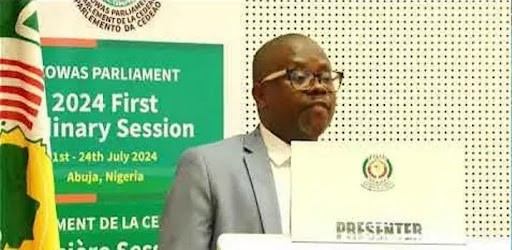By: Kebba AF Touray
According to UNDP’s Report, the cost of living crisis is pushing an additional 78-141 million into poverty globally.
The said report called “The State of Play: Poverty and Inequality in West Africa” was tabled before the Members of the Sixth Legislature of the ECOWAS Parliament on Saturday, 20 July 20424.
“The cost-of-living crisis is pushing an additional 78–141 million into poverty. The combined crises have pushed an additional 75–95 million into extreme poverty. Roughly 575 million people will still be in extreme poverty in 2030,” UNDP Report revealed.
The report further disclosed that 20 percent of Africa’s population is classified as food insecure, while some 54 per cent of Africans lack basic sanitation services.
On the State of ECOWAS, it indicated that in 2020, the West African region lost about US$48.7 billion in GDP and 7 million jobs, with growth still very small to make a dent on poverty reduction.
It averred: “The GDP will have more than tripled by 2043, reaching about US$2.0 trillion. This will increase the share of ECOWAS in Africa’s economy to about 29.2 percent by 2043”.
On how much human development is lost to income inequality, the report stated that ECOWAS is losing 57% of its human development, by not addressing income inequality, which will give rise to human inequality.
The report also highlighted that weak social protection systems, less developed financial systems, energy crises, unfavorable business climate and the inability to enforce regulation and large informal economy are factors aggravating the welfare attributes in the ECOWAS Region.
The report proffered that there is the need for innovation and digital transformation, as a means of staying competitive; changing of consumer tastes as demand, reliable energy to drive the future and poly-crisis are key factors that will drive change.
It added that there is also the need for young people to acquire skills and dynamic interest that are needed for workforce transition, and artificial intelligence and machine leasing are significant in roads and their impact is set to grow exponentially in the coming years.
Some key comments made by the members of the parliament include but are not limited to the comment that the region does not have a definite definition for poverty.
The member underscored that this is because the members are working towards the SDG 2030 that they are striving at, they can at least have some support for that SDG, “but unfortunately from the figures given to us, we cannot get anywhere with that SDG, and “so, we need to find a way of how we can solve this problem of poverty in our countries as well as sub region”.
Others argue that “politicking and greed are all causing poverty in our sub region. Politicking in the sense that if one party wins an election, it brings everybody from the same party along, and greed in the sense when in the case of a capitalist, who does not want his brother coming up with him. So, in our sub region politicking and greed are driving the citizens into the mess of poverty”.


















